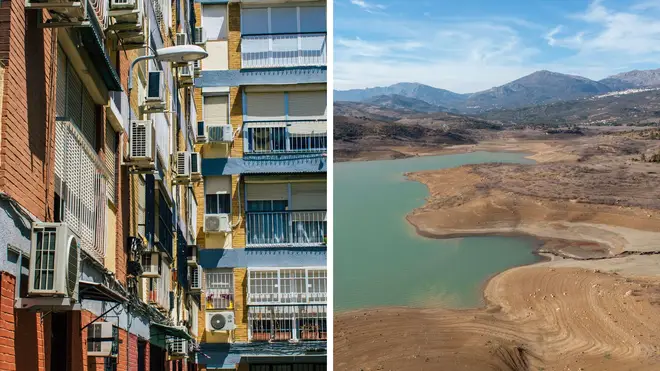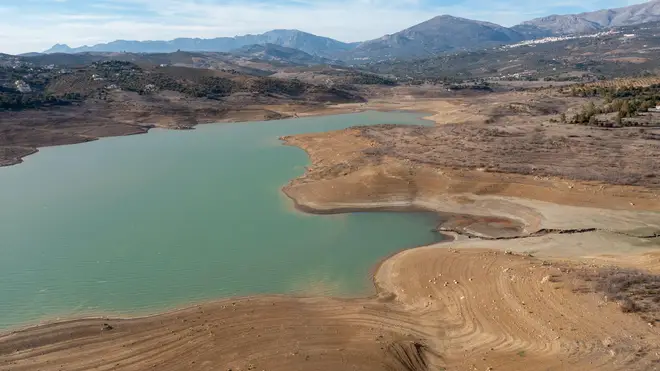
Tom Swarbrick 4pm - 6pm
11 August 2022, 02:11 | Updated: 11 August 2022, 02:17

Spain has introduced harsh limits on air conditioning in public buildings in a bid to save energy during the country's second heatwave of the summer.
The rules affect places including shops, offices, theatres and cinemas in an EU-wide effort to reduce reliance on Russian energy.
Under the changes, air conditioning must not exceed 27C and heating will not be allowed higher than 19C.
The legislation, which was adopted last week, also requires shops to switch off window-display lighting from 10pm.
Any air-conditioned or heated premises must have an automatic door-closing mechanism installed by the end of September too, in a bid to avoid energy waste.
However, no specific penalties have been set by the Spanish government, with it instead leaving it to the country's 17 regions to track compliance.
Read more: Warning 'lethally hot' heatwave could be worse than July's 40C record-breaking weather
The EU-wide plan came into effect on Tuesday with the aim of member states cutting back their reliance on Russia by "at least 15 percent" between August and March 2023.
It comes as part the European Commission's plans to cut dependency on Russian gas by two-thirds in 2022 - ending its reliance on the country's fuel supplies completely before 2030.
Our emergency plan to reduce gas demand across the EU is now in force.
— Ursula von der Leyen (@vonderleyen) August 9, 2022
Several Member States have already taken valuable, voluntary measures towards our target:
Together, we aim to reduce gas usage by at least 15%.
Saving energy is vital to Europe's energy security.#REPowerEU pic.twitter.com/Iy6b0O0g3O
The Spanish government is understood to have been one of the first to react to gas and electricity prices going up so dramatically almost a year ago.
Back in September 2021, they passed emergency measures to reduce sky-high energy bills by redirecting billions of euros made in profit by energy companies to consumers and capping increases in gas prices.
They announced 16 billion would be put aside to help companies and households cope with rising energy bills.
The Spanish government also introduced a windfall tax on energy companies as well as a price cap in April which aims to half energy bills for 40 per cent of customers.

The main aim is to bolster gas reserves in time for what is expected to be a tough winter.
But the incoming rules are also set to hit the country hard as it deals with extreme heat over summer.
High temperatures made July the hottest month in Spain since at least 1961.
Reservoirs were at 40 per cent of their capacity at the beginning of August - well below the ten-year average of around 60 per cent - official data suggested.
"We are in a particularly dry year, a very difficult year that confirms what climate change scenarios have been highlighting," Energy minister Teresa Ribera said on Monday.
She highlighted that the drought was leading to devastating wildfires.
However, with the dry, hot conditions likely to continue into the autumn, Spain's weather agency said there will be further strain on Europe's largest network of dammed reservoirs.